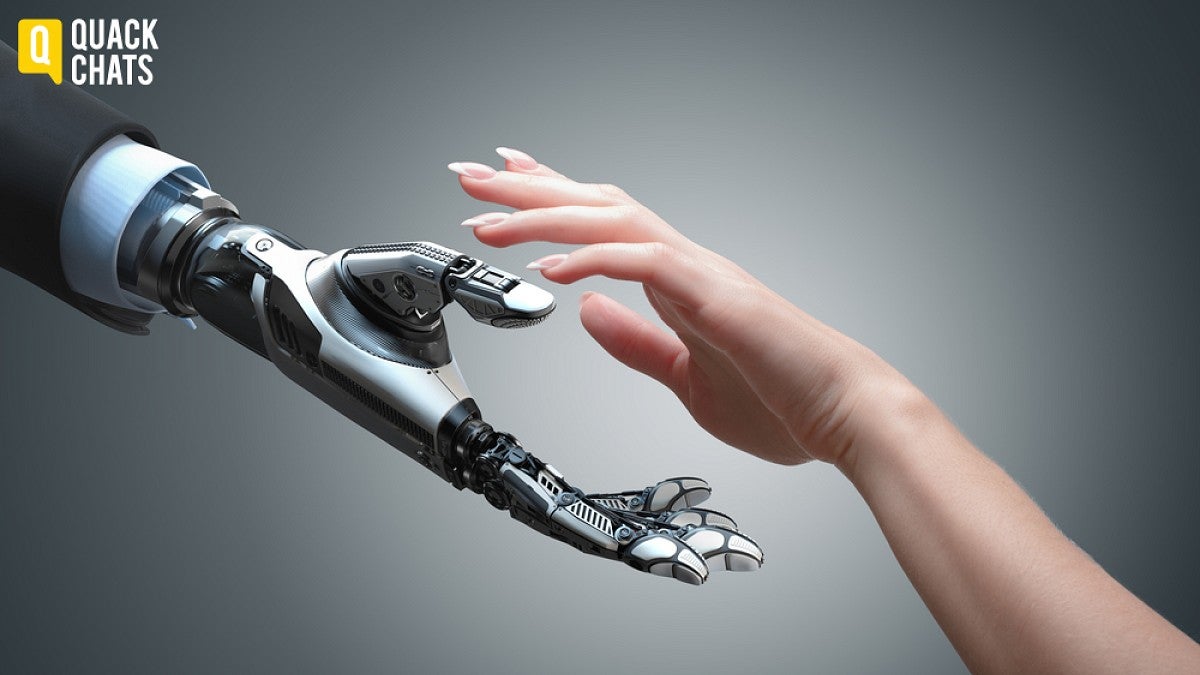Lightning strikes an experimental military robot, transforming it into an intelligent being with humanlike thinking. If it sounds like a plot from a science fiction movie, it is.
The film “Short Circuit” captivated audiences in 1986 and, to this day, is fondly remembered by many. For UO computer scientist Daniel Lowd, it remains one of his first memories of being exposed to ideas about artificial intelligence.
“I think there is something inherently cool about the idea of artificial intelligence,” Lowd said. “Artificial intelligence is increasingly advanced technology and increasingly magical.”
A quest to learn the science behind that magic led Lowd into a career in computer science. On Wednesday, Jan. 23, he will give a free Quack Chats pub talk titled “When Should We Trust Artificial Intelligence?”
The talk begins at 6 p.m. at the Ax Billy Grill & Sports Bar at the Downtown Athletic Club, 999 Willamette St. in Eugene.
“I’m going to be talking about all the ways that artificial intelligence affects daily life, the risks of what could happen when it goes wrong and what we can do to reduce those risks,” Lowd said.
Artificial intelligence is the use of computers to perform complex tasks that traditionally required human intelligence. It is currently applied in everything from spam filtering to autonomous vehicles to ad placements. AI helps radiologists analyze x-rays, the Mars rover Curiosity choose which rocks to study, and airports schedule security patrols.
Lowd has been studying adversarial machine learning, techniques for finding and fixing the vulnerabilities of AI systems, since 2004. He has received funding from the Army Research Office and has published several papers in the top machine learning journals and taken part in conferences and workshops related to artificial intelligence and security.
“We have a lot more experience in the mistakes human intelligence makes and less experience with the kinds of mistakes that artificial intelligence makes,” Lowd said. “That’s why we need to be looking into what some of those potential pitfalls are, how to identify them and how to fix them.”
The good news is, humans have the power to change the algorithm or even pull the plug on an AI that’s causing more harm than good.
“We are nowhere near creating artificial intelligence systems that would be powerful enough to stop themselves from being turned off,” Lowd said.
Lowd says the real concerns with artificial intelligence may not be as obvious but can be even more damaging.
“The decisions made by Facebook on what shows up on your news feed may force you to miss important updates from your friends, radicalize you with fake news and possibly swing elections, change world events and even contribute to genocide,” Lowd said.
Current problems with artificial intelligence are less cinematic than giant killer robots, but nonetheless represent a real danger, one that Lowd hopes to address with his research.
To learn more about upcoming Quack Chats, see the Quack Chats section on Around the O. A general description of Quack Chats and a calendar of additional Quack Chats and associated public events also can be found on the UO’s Quack Chats website.
See Lowd’s UO Experts page at http://uonews.uoregon.edu/daniel-lowd-department-computer-and-information-science.
—By Molly Blancett, University Communications


